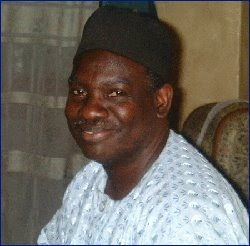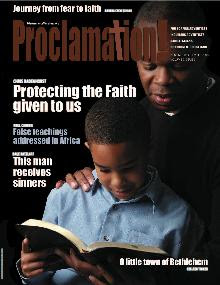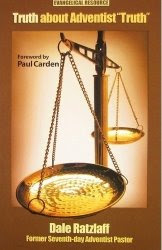 Last week I mentioned coming across an issue of the Evangelical Review of Theology (ERT) that’s been valuable to my preparations for serving Christ in East Africa. One especially noteworthy article is “The Contemporary Theological Situation in Africa: An Overview” by Dr. James Nkansah-Obrempong, a Ghanaian theologian who teaches at Nairobi Evangelical Graduate School of Theology.
Last week I mentioned coming across an issue of the Evangelical Review of Theology (ERT) that’s been valuable to my preparations for serving Christ in East Africa. One especially noteworthy article is “The Contemporary Theological Situation in Africa: An Overview” by Dr. James Nkansah-Obrempong, a Ghanaian theologian who teaches at Nairobi Evangelical Graduate School of Theology.First, Nkansah-Obrempong describes efforts by Christians to regain their identity as the continent emerged from the colonial era. Next he moves through the interaction of African theologies with culture and explains how Africans have engaged in theological reflection. Finally he examines the fruit, achievements, and future of African theological reflection today.
I’m gaining much by listening to the voices of African Christian leaders, and Nkansah-Obrempong is no exception; his overview has helped me to better understand the current state of theology in Africa. I especially appreciate his desire to balance the need to contextualize God’s truth with the need to remain faithful to His revealed Word.
This balance can be hard to achieve—and it’s here that I admit to having a degree of hesitation with this article. (I want to resist drawing hasty conclusions, as my exposure to African Christianity is admittedly limited.) Nkansah-Obrempong’s treatment of African liberation theology and Christianity’s interaction with various socio-political issues seems to lean toward an overemphasis on this-worldly concerns at the expense of our relationship with God. And while I don’t suggest that he’s actually gone down this path, at times his article suggests tendencies in that direction.
Where Nkansah-Obrempong truly excels is in pointing to the future of African theology. He stresses the need for greater engagement with African Independent Churches and the danger of syncretizing the historic Christian faith with traditional beliefs:
The theological climate in the African Independent Churches (AICs) is one that needs serious attention. By ignoring this area, evangelical communities have neglected the theology of some of the fastest-growing churches in Africa. Since most of the leaders of these communities are not theologically trained, there is a greater risk of syncretism developing among them. However, these groups are making a frantic effort to relate theology and religious experience to the African culture.He also mentions the serious challenge posed by cultic groups in Africa:
The current cults, such as the House of Yahweh with all their heretic tendencies and theological heresies, are alleged to be hatched from the west. These theologies have the potential to destroy the purity of the Christian faith in Africa. The African church must guard against such infiltration of religious and heretical influences from the west.Nkansah-Obrempong also laments the growing spiritual cancer of the Word-Faith movement:
In addition, the theology of prosperity that has come from the west is leading the church into a philosophy of materialism, which, if not checked, could have devastating effects upon Christianity in Africa. This theology is undermining the teaching of Scripture at many critical levels, and this can lead to rejection or at least undermining of certain teachings of the Christian faith on suffering and persecution, which are central to the Christian faith.Let us join Dr. Nkansah-Obrempong in praying that authentically evangelical theology will flourish in Africa. As global Christianity continues to shift away from the West and toward the South, our African brothers and sisters in Christ will have an increasingly important role in the future of our faith. May Christianity continue to grow in Africa—and may it remain faithful to Scripture.




 As 2009 begins, this truth has become all too evident to me. How is my Savior calling me to respond? Not by sitting back and doing nothing. No! What I need to do is keep what I’m doing in perspective. I am serving Christ, and I should not get so caught up in my work that I loose sight of my purpose in working. I seek to glorify Christ through the defense of His truth!
As 2009 begins, this truth has become all too evident to me. How is my Savior calling me to respond? Not by sitting back and doing nothing. No! What I need to do is keep what I’m doing in perspective. I am serving Christ, and I should not get so caught up in my work that I loose sight of my purpose in working. I seek to glorify Christ through the defense of His truth!
 As promised, I’m back! And as you can tell, we’ve entered 2009 with some changes.
As promised, I’m back! And as you can tell, we’ve entered 2009 with some changes.

